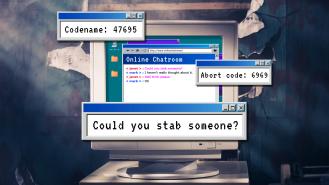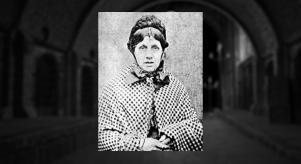
The teenager who persuaded her boyfriend to take his own life
On 12th July 2014, 18-year-old Conrad Henri Roy III was found dead in his truck in a Kmart parking lot in Fairhaven, Massachusetts. He had died from carbon monoxide poisoning.
At first appearance, it looked as though Conrad’s death was nothing more than a typical suicide, which is tragically the tenth leading cause of death in the United States. However, police discovered a series of ominous text messages from his girlfriend, 17-year-old Michelle Carter. Text messages which indicated that Carter had been persuading her boyfriend to take his life.
The case sparked much debate on whether somebody could be found criminally responsible for another person’s suicide, simply through words.
Carter was an honour roll student at King Phillip Regional High School, while Conrad had just recently graduated from Old Rochester Regional High School. He had ambitions to attend Fitchburg State University. (San Diego Examiner, 28 February 2015 – 'Michelle Carter, Conrad Roy III Case')
The couple met while on vacation with their families in Florida. When they returned to Massachusetts, they very rarely saw one another but continued their relationship mostly through text messages and online. Both Conrad and Carter were troubled teens; Conrad had battled depression and suicidal thoughts, while Carter had suffered from an eating disorder and depression. (Irish Times, 3 August 2017 – 'Michelle Carter Sentenced for Texts Urging Friend to Commit Suicide')
Between October 2012 and July 2014, Conrad attempted suicide several times. On each occasion, he had either abandoned his attempt or sought out help.
Conrad had texted Carter about his ideations and at first, she had tried to dissuade him from suicide. She had suggested that Conrad come to McLean Hospital with her, where she was receiving treatment for an eating disorder.
As time progressed, however, Conrad appeared more and more determined to take his own life, and Carter seemingly began embracing the idea, before eventually even encouraging it.
In the few days leading up to 12th July 2014, Conrad and Carter exchanged more than 1,000 text messages. Conrad said that this time he was certain to go through with the suicide attempt. He had purchased a water pump that he planned on using to generate carbon monoxide in his truck.
On the night of the suicide, Conrad was texting Carter about his plans to take his own life via carbon monoxide poisoning. He was still inside his family home when he said that he had decided against it and was just going to go back to sleep. Carter responded by telling him that “now” was the best time because the rest of his family was sleeping. She told him to get into his truck, park somewhere, and then commit suicide. (International Business Times, 6 June 2017 – 'Girlfriend Who Sent Texts to Boyfriend "Telling Him to Kill Himself"')
Some of the text messages that Carter had sent to Conrad read:
“The time is right and you’re ready, you just need to do it!”
“So I guess you aren’t gonna do it then, all that for nothing… I’m just so confused like you were so ready and determined.”
"If this is the only way you think you're gonna be happy, heaven will welcome you with open arms.”
“When are you going to do it? Stop ignoring the question???? You can’t keep push [sic] it off.”
Conrad was eventually persuaded to climb into his truck and drive the short distance to the Kmart. Here, he proceeded with the plan to kill himself. However, at one point, Conrad texted Carter that he wasn’t ready to die and that he was going to get out of his truck while it idled. It was at this moment that Carter called Conrad. She later claimed to a friend that during this phone call, she ordered him to get back into the truck.
Conrad’s body was found the following day when his parents reported him missing.
Following the suicide, Carter took to social media to share her apparent grief. She posted about how much she had loved Conrad and how much she missed him. She often spoke about suicide awareness, even retweeting links to suicide prevention hotlines.
One day, she posted: "Such a beautiful soul gone too soon. I'll always remember your light and bright smile. You'll forever be in my heart. I love you, Conrad." Several days later, she posted: "I will never understand why this had to happen."
In the wake of the tragedy, Carter held a fundraiser baseball tournament in memory of Carter named ‘Homers for Conrad’. The purpose was to raise money for suicide prevention. In describing the charity tournament online, Carter posted: “Life can be tough, but helping others makes it easier.” (Long Island Examiner, 28 February 2015 – 'Conrad Roy III Urged to Kill Himself by Carter, Teen Charged')
Carter raised over $2,300 and speculation started to mount that Carter encouraged Conrad to take his own life to make a name for herself. (Chicago Examiner, 27 February 2015 – 'Conrad Roy III Dead After Friend Told Him to Kill Himself')
Carter later confided in a friend that she had been on the phone with Conrad when he died. In a text message, she wrote: "His death is my fault, like honestly I could have stopped him. I was on the phone with him and he got out of the car because it was working and he got scared and I [expletive] told him to get back in."
Police eventually found the text messages between Conrad and Carter and in February 2015, the case went before a grand jury. Carter was charged with involuntary manslaughter.
Due to her young age, she was indicted as a ‘youthful offender’. Carter was released on bail but under conditions, including having restricted access to the internet and not sending text messages to anybody other than her parents.
Carter’s defence lawyer, Joseph P. Cataldo, had argued that Carter did not commit a crime while the prosecution stated: "Michelle not only encouraged Conrad to take his own life, she questioned him repeatedly as to when and why he hadn't done it yet, right up to the point of when his final text was sent to her on Saturday evening, July 12, 2014.”
In June 2017, Carter stood trial on the manslaughter charge. It was a bench trial meaning that her fate was determined by a single judge as opposed to a jury.
Her defence team suggested that Carter had tried to talk Conrad out of suicide in the past and only began to support his suicide attempt when she realized that he actually wanted to die. The prosecution built their case on the text message that Carter had sent to a friend, confiding in them that she had ordered Conrad to get back into his truck.
For the first time, the public was made aware of the extent of the text messages that Conrad and Carter had exchanged in the lead up to his suicide.
Michelle Carter was found guilty of manslaughter. The judge concluded that Carter’s failure to help Conrad, either by calling the police or by encouraging him to leave the car, was a crucial piece of evidence that led him to come to a guilty verdict. Judge Lawrence Moniz said: “Where one’s action creates a life-threatening risk to another, there is a duty to take reasonable steps to alleviate the risk.” (The Evening Leader, 17 June 2017 – 'In Landmark Case, Woman Convicted For Urging Her Boyfriend to Commit Suicide')
The verdict had come as a surprise to many, in part because Massachusetts does not explicitly outlaw persuading another person to take their own life. Moreover, there was no evidence regarding what Carter had said to Conrad during that final phone call. She had claimed to a friend that she told him to get back into the car and continue with his suicide plan, but the phone call was never recovered.
The prosecution and Conrad’s family wanted the maximum sentence, with Conrad’s father, Conrad Roy Jr. stating that Carter had “exploited” his son’s weakness and used him as a pawn for her own well-being.
Carter’s defence lawyer, Joseph P. Cataldo, however, asked for a lenient sentence. He said that his client regretted her actions, adding that she too had been battling mental illness in the lead up to the suicide.
While Carter could have faced up to 20 years in prison, she was sentenced to 15 months in county jail. In announcing the sentence, Judge Lawrence Moniz said: "This court must and has considered a balancing between rehabilitation, the promise that that rehabilitation would work and a punishment for the actions that have occurred.” (Oswego News, 4 August 2017 – 'Woman Gets 15 Months for Role in Suicide')










